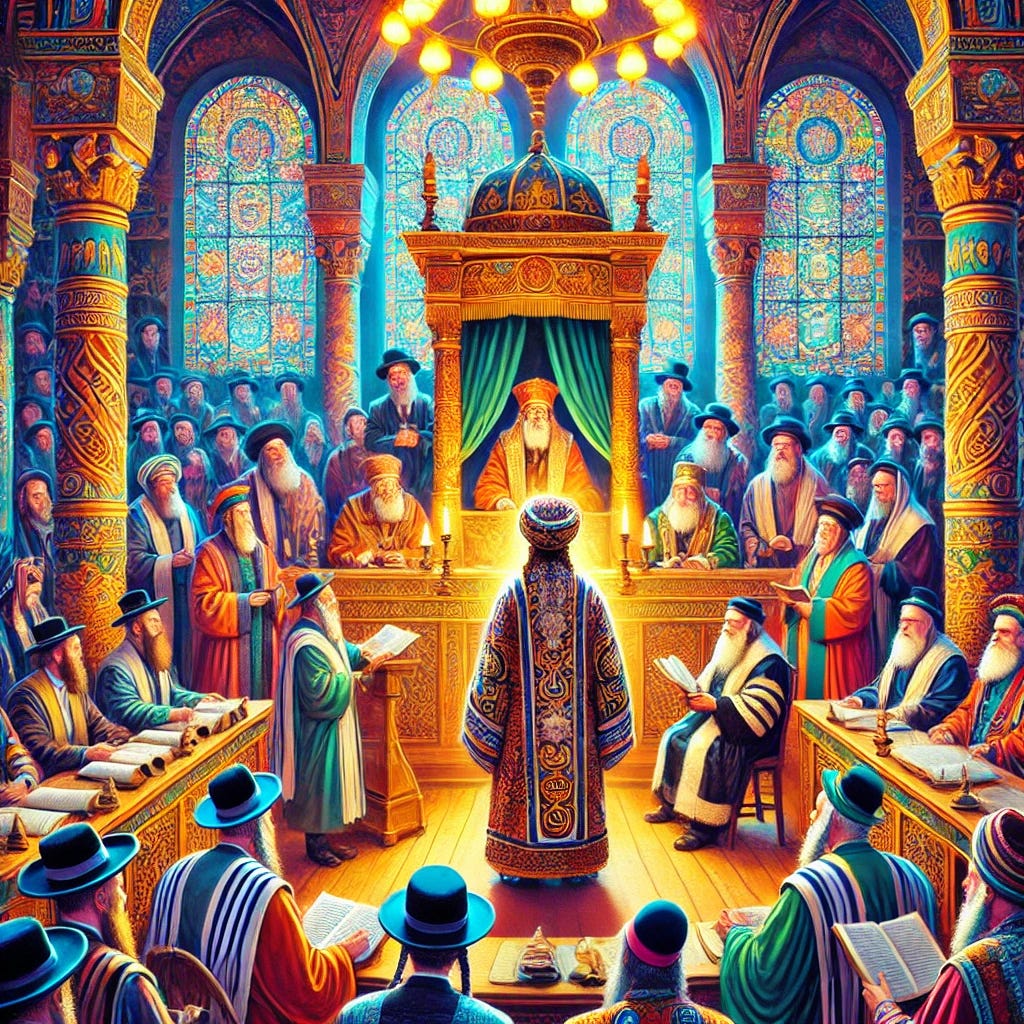The Hidden Rejected Derasha about Executing on Shabbat
In today’s daf, Sanhedrin 35, there was an interesting rejected derasha mentioned in a brayta:
מִשּׁוּם רַבִּי יִשְׁמָעֵאל אָמַר תַּלְמִיד אֶחָד: לְפִי שֶׁנֶּאֱמַר ״כִּי יִהְיֶה בְאִישׁ חֵטְא מִשְׁפַּט מָוֶת וְהוּמָת״, שׁוֹמֵעַ אֲנִי בֵּין בַּחוֹל בֵּין בַּשַּׁבָּת. וְהָא מָה אֲנִי מְקַיֵּים ״מְחַלְּלֶיהָ מוֹת יוּמָת״? בִּשְׁאָר מְלָאכוֹת, חוּץ מִמִּיתַת בֵּית דִּין. אוֹ אֵינוֹ אֶלָּא אֲפִילּוּ מִיתַת בֵּית דִּין? וּמָה אֲנִי מְקַיֵּים ״וְהוּמָת״? בְּחוֹל אֲבָל לֹא בְּשַׁבָּת. אוֹ אֵינוֹ אֶלָּא אֲפִילּוּ בַּשַּׁבָּת?
Rava continues: One student said in the name of Rabbi Yishmael that since it is stated: “And if there is in a man a sin deserving of death and he is put to death” (Deuteronomy 21:22), I would derive that the court administers capital punishment both during the week and on Shabbat. And accordingly, how do I realize the meaning of what the verse states concerning Shabbat: “Everyone that desecrates it shall be put to death” (Exodus 31:14)? One possibility is that the term: Desecration of Shabbat, applies only to other cases in which labor is performed, and excludes instances of the death penalty administered by a court, which is not a desecration of Shabbat. Or rather, derive that even the death penalty administered by a court is prohibited as desecration of Shabbat. And how do I realize the meaning of: “And he is put to death”? One possibility is that the mitzva of executing transgressors applies on weekdays, but not on Shabbat. Or rather, the other possibility is that it applies even on Shabbat.
Both the Koren translation and the Artscroll translation render this verse as essentially “And if there is a man deserving of death and he is put to death”. Further, how does this verse imply whether on weekday or Shabbat? Says Rashi, and Artscroll follows, שומע אני - והומת בין בחול בין בשבת דתיתי לך מק"ו מעבודה כדאמרינן לעיל, that is based on the kal vachomers above. Even though the kal vachomers above were from different Sages, perhaps from a different academy that that of Rabbi Yishmael!
I think that this case calls for a close reading.
״כִּי יִהְיֶה בְאִישׁ חֵטְא מִשְׁפַּט מָוֶת וְהוּמָת
Ki means if, but also when. To quote Strong’s Lexicon:
The Hebrew conjunction "ki" is a versatile particle used to express causation, condition, time, and emphasis. It often introduces clauses that explain reasons ("because"), conditions ("if"), or time ("when"). It can also be used to affirm or emphasize a statement ("surely," "indeed").
There are other derashot about the word yihyeh, meaning the specific time when something comes into being.
Thus, “at the specific time when a man is determined to be deserving of death — he shall be put to death”. That’s the derasha.
Going back to Sanhedrin 33b, another aspect of a derasha seemed possible.
דִּינֵי נְפָשׁוֹת כּוּ׳. תָּנוּ רַבָּנַן: מִנַּיִין לְיוֹצֵא מִבֵּית דִּין חַיָּיב, וְאָמַר אֶחָד ״יֵשׁ לִי לְלַמֵּד עָלָיו זְכוּת״, מִנַּיִין שֶׁמַּחְזִירִין אוֹתוֹ? תַּלְמוּד לוֹמַר ״נָקִי אַל תַּהֲרֹג״.
§ The mishna teaches that in cases of capital law, the court brings the accused back to be judged again with a claim to acquit him, but does not bring him back to be judged with a claim to find him liable. To explain the terms “innocent” and “righteous” in the verse: “And the innocent and the righteous you shall not slay” (Exodus 23:7), the Sages taught: From where is it derived that with regard to one who is leaving the court having been found liable, and someone said: I have the ability to teach a reason to acquit him, from where is it derived that the court brings the accused back to be judged again? The verse states: The innocent you shall not slay, and the accused may in fact be innocent.
This is derasha by ellipses. The full verse is Shemot 23:7:
דְּבַר־שֶׁ֖קֶר תִּרְחָ֑ק וְנָקִ֤י וְצַדִּיק֙ אַֽל־תַּהֲרֹ֔ג כִּ֥י לֹא־אַצְדִּ֖יק רָשָֽׁע׃
Keep far from a false charge; do not bring death on those who are innocent and in the right, for I will not acquit the wrongdoer.
So for it is venaki … al taharog
and then it is vetzadik al taharog
each taken separatedly. With the naki being the actually innocent and the tzadik being the one merely found (technically) “righteous” in court.
But there is also a reason for this, available as the verse continues. Namely, a Divine promise that if someone has been found not guilty, they are not indeed guilty — “for I will not acquit the wrongdoer”.


